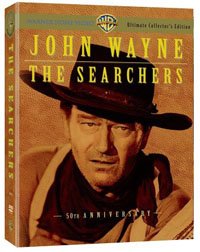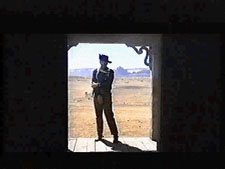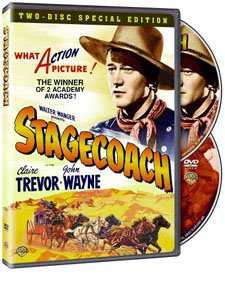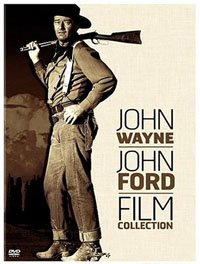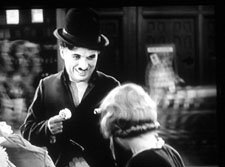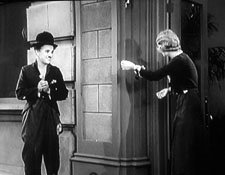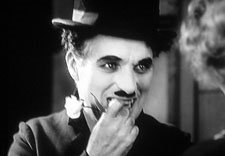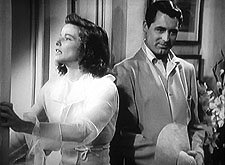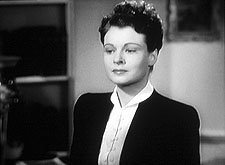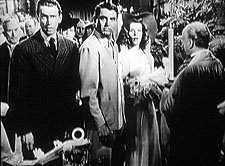 This is another one of those movies that I've lost track of the number of times I've watched. But over the years, yes, I've watch Planes, Trains and Automobiles a lot. The performances are great, the pacing is bang on and it never, ever, loses its focus. Yes, it's a pretty simple story but that's where a lot of its power comes from.
This is another one of those movies that I've lost track of the number of times I've watched. But over the years, yes, I've watch Planes, Trains and Automobiles a lot. The performances are great, the pacing is bang on and it never, ever, loses its focus. Yes, it's a pretty simple story but that's where a lot of its power comes from.Anyway ... I watched it again last night. So I decided to post this, a review I threw together a few years ago:
What a joy it is to watch a movie you had forgotten about and weren't expecting a lot from, to discover it is nothing less than wonderful. Planes, Trains and Automobiles is an absolute gem of a movie. Perhaps one of the reasons it succeeds so well is because it is so simple and maintains its focus.
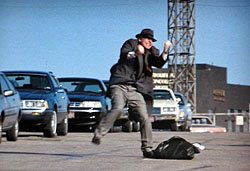 Steve Martin (Neal) is heading home to Chicago for Thanksgiving. So is John Candy (Del). They are travellers with personalities at opposite ends: Neal is a prim and proper, an anal businessman, while Del is a talkative, somewhat crass low-rent guy who sells shower curtain rings. Circumstances, increasingly ludicrous yet believable, keep throwing them together. Martin's character feels nothing but irritation about his situation and Candy's character while Candy's Del is oblivious - he just goes with the flow. Together, they take planes, trains, cars, trucks and so on as they try to get home.
Steve Martin (Neal) is heading home to Chicago for Thanksgiving. So is John Candy (Del). They are travellers with personalities at opposite ends: Neal is a prim and proper, an anal businessman, while Del is a talkative, somewhat crass low-rent guy who sells shower curtain rings. Circumstances, increasingly ludicrous yet believable, keep throwing them together. Martin's character feels nothing but irritation about his situation and Candy's character while Candy's Del is oblivious - he just goes with the flow. Together, they take planes, trains, cars, trucks and so on as they try to get home.It's a variation of the buddy, road-movie type of film. But I think it shows why these kinds of movies are so popular when they're well done. It is all about the characters and their relationship. In this case, Steve Martin and John Candy are a perfect pairing. I've always liked Martin best when he plays more of a straight character. In this film, he plays straight though this doesn't mean he's not comedic. On the contrary, he is more comedic because of this. Everything happens to him and his reactions are priceless.
Candy, on the other hand, has never been more loveably obnoxious. He's the boob, the stooge. Always well-intentioned, almost everything he does causes disaster for Martin's Neal. It's very much a Laurel and Hardy or Martin and Lewis kind of combination that they play. A lot of the humour is slapstick - visual - and it works well. While many comedies are amusing, I find I don't often laugh as I watch them, though I may smile. In this movie, I laughed. And that is the litmus test for comedy.
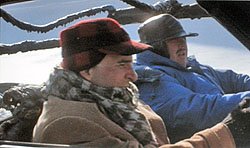 The film, however, doesn't work just because of its comedy. And the comedy doesn't work in a vacuum. The characters created by writer-director John Hughes' script, and brought to life by Martin and Candy, are what allow everything to play out successfully. It's in the developing relationship, and the degree of depth the actors give their characters, that guides the movie forward.
The film, however, doesn't work just because of its comedy. And the comedy doesn't work in a vacuum. The characters created by writer-director John Hughes' script, and brought to life by Martin and Candy, are what allow everything to play out successfully. It's in the developing relationship, and the degree of depth the actors give their characters, that guides the movie forward.The movie isn't just about getting laughs; it has a theme which is the value of home and relationships. Thematically, it's similar to It's A Wonderful Life. It's not particularly profound; it's rather simple. But again, this simplicity is part of what allows the film to work and also part of its appeal. It's accessible and understandable to pretty much everyone. The key in making a movie such as this is avoiding a saccharine quality. This movie, while it may have a wisp of that, doesn't succumb and this gives it credibility. The humour, too, takes the edge off any hint of sappiness.
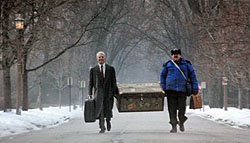 I think, too, there's something worth an essay or two in the fact that movies like Planes, Trains and Automobiles (and many Capra films like It's A Wonderful Life) can be and are watched over and over again. Why is something so simple so compelling? Why do other, more apparently profound films, hard to view more than once without becoming bored, while films like this can be seen again and again? As with children when they want to hear the same story over and over, certain stories, certain themes, address something we need to have repeated for one reason or another. I think it probably has something to do with truth - not the truth of tangible reality, but some truth or truths about us, people, and our relationships with one another.
I think, too, there's something worth an essay or two in the fact that movies like Planes, Trains and Automobiles (and many Capra films like It's A Wonderful Life) can be and are watched over and over again. Why is something so simple so compelling? Why do other, more apparently profound films, hard to view more than once without becoming bored, while films like this can be seen again and again? As with children when they want to hear the same story over and over, certain stories, certain themes, address something we need to have repeated for one reason or another. I think it probably has something to do with truth - not the truth of tangible reality, but some truth or truths about us, people, and our relationships with one another.This reads a bit lofty for a review of a good, simple film that makes us laugh, so let me quickly move on to the DVD ...
If you haven't seen Planes, Trains and Automobiles, or if it has been a while since you've seen it, this one is highly recommended. It's what a comedy should be - funny. In fact the only reservation I have about the movie, the only thing I could find fault with, is the music. It sets the film far too firmly in the 1980's. If the music were removed, the film is timeless. But don't worry - the music isn't bad. Just anachronistic. And it doesn't interfere with the enjoyment of the film. (But let me add - I loved the carousel sounding rendition of the Red River Valley song.)
Tags: Movies, DVD, Steve Martin, John Candy, Planes, Trains and Automobiles





